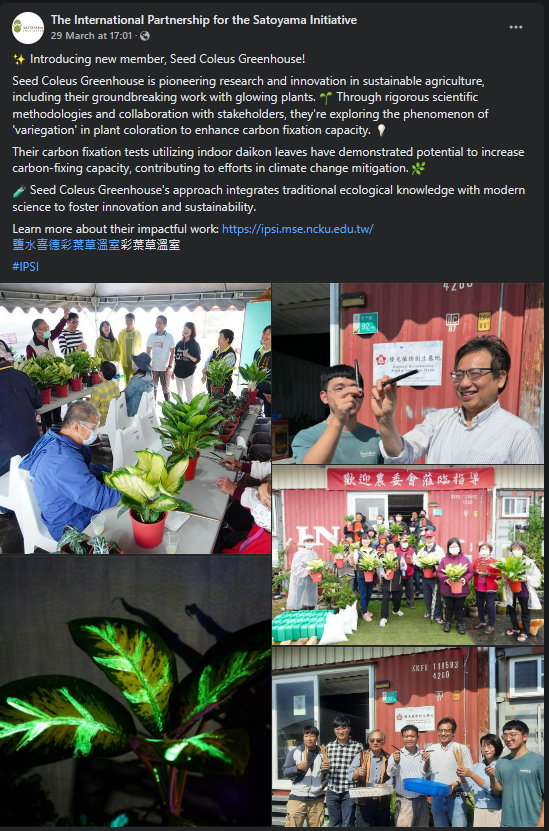The 2025 USR International Forum, “Reframe in Progress: USR Toward the Future”, kicks off at NCKU
In the face of global issues such as population aging and social transformation, the forum aimed to foster cross-border dialogue and practical exchange to rethink the path of social “reframe” and advance USR initiatives. It was an extension of the August 2–8 international workshop, which covered topics including community co-creation, health promotion, age-friendly environments, and regional revitalization. The discussions explored how universities across Asia are responding to societal needs, taking on social responsibilities, and building transnational higher education networks to work toward a more inclusive and sustainable future.
NCKU Vice President Yuh-Neu Chen noted in her speech that the university has participated in the Ministry of Education’s USR program for a decade, with a mission to “engage with society, respond to local needs, and take responsibility.” Beyond funded projects, many professors voluntarily contribute to social responsibility-related research and initiatives. She expressed appreciation for the Research Center for Humanities and Social Sciences’ sustained efforts in Tainan’s rural, foothill, and aging communities, continually improving services and expanding USR’s impact.
Vice President Chen emphasized that under the dual pressures of population aging and declining birth rates, the role of universities has become even more crucial. At NCKU, cross-disciplinary teams — such as those from the Department of Architecture and the Department of Electrical Engineering — have collaborated on the “Enhancing Rural School Lunch Program” to improve the nutrition and learning environments of children in remote areas, demonstrating the power of academia in contributing to society. From age-friendly initiatives and rural education to intergenerational cooperation and urban–rural co-creation, NCKU continues to address diverse societal challenges through both knowledge and action.
“NCKU continues to expand partnerships, deepen exchanges between faculty and students, and host various international forums and seminars, with the aim of sharing Taiwan’s experiences, practices, and innovations with the world in response to common global challenges,” said Vice President Chen. She noted that last year, the USR Accompany Project Team co-hosted the International Design Forum on an Aging Society with the College of Planning and Design, inviting scholars from Japan and Singapore to exchange insights on addressing super-aged societies. This year, the forum has brought in higher education partners from Thailand and Indonesia, further enhancing transnational learning and collaboration, inspiring pride in the city, and working hand in hand with Tainan toward a shared future.
Distinguished Professor Cheng-Ta Yang, from NCKU’s Department of Psychology, Director of the NCKU Research Center for Humanities and Social Sciences, and principal investigator of the USR Accompany Project, noted that the phenomenon of super-aging is a challenge shared by many countries, and that universities must take an active role in promoting mental health. Since 2020, the Accompany Project has been deeply engaged in aging-related issues and has maintained long-term academic and research exchanges with Chiba University in Japan and the Singapore University of Social Sciences.
Professor Yang added that this year, by connecting with Chiang Mai University and King Mongkut’s University of Technology in Thailand as well as Universitas Indonesia, the project has built an East Asian research and practice community. This serves not only as a continuation of previous international courses and online dialogues but also as an effort to forge transnational consensus in addressing rapidly changing and structurally complex social issues. The forum invited scholars from multiple countries to share experiences in community co-creation and health promotion, with the aim of developing a joint action blueprint for universities to advance social responsibility, establishing a future vision platform for higher education social engagement, and driving more cross-sector collaboration.
Professor Cheng-Luen Hsueh, Chair of NCKU’s Department of Architecture, stated that architectural education at NCKU has long emphasized professional training that responds to social needs. More than half of the department’s faculty actively participate in social engagement projects in areas such as Taitung and Matsu, and several are currently involved in post-disaster reconstruction and rural support efforts following recent typhoons and heavy rains. He noted that USR has become deeply embedded in the department’s DNA, serving as a core belief in cultivating students and fostering social awareness, and expressed the hope that more international partners will witness the dedication and impact of NCKU’s faculty and students in USR practice.
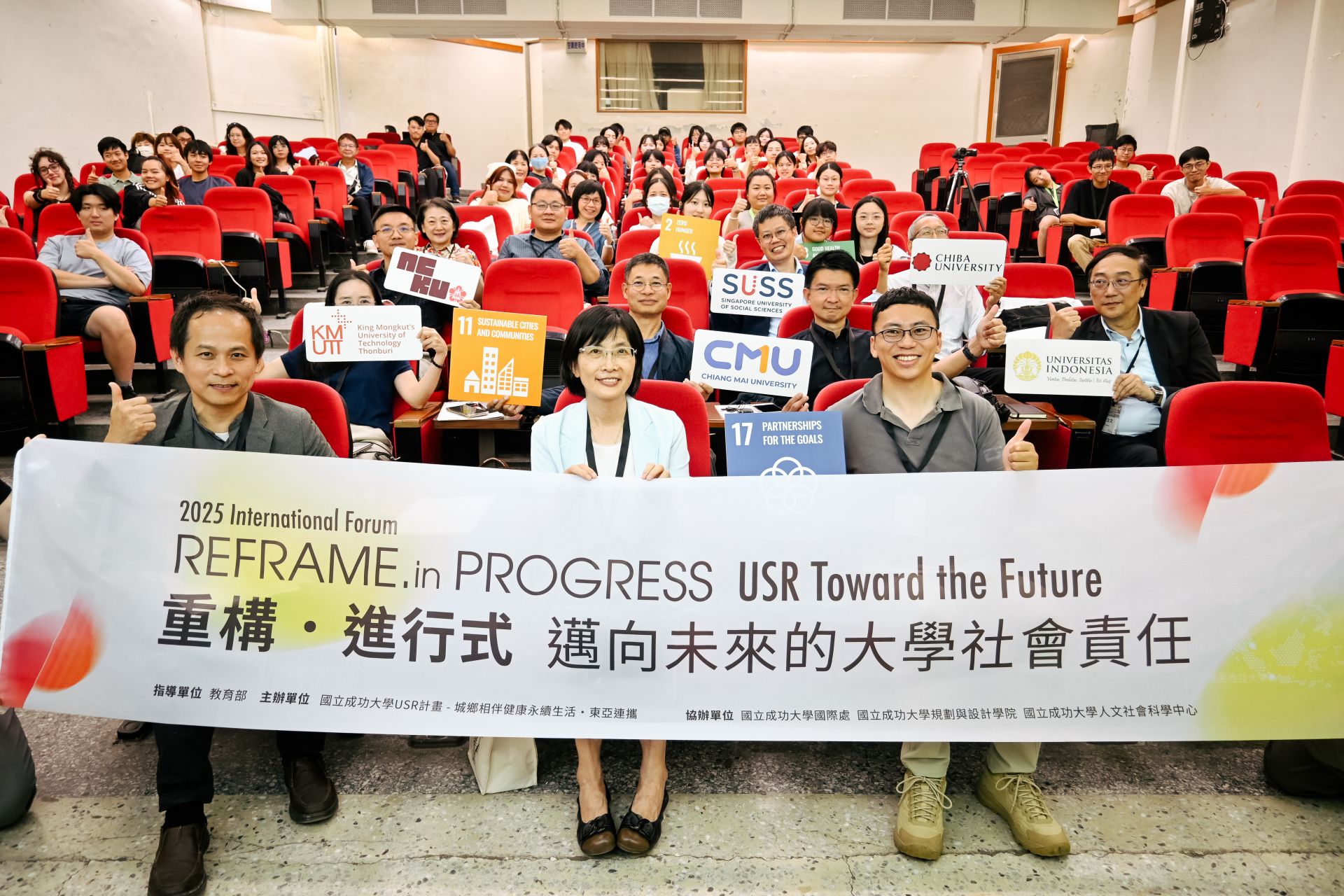
To showcase its 2025 USR (University Social Responsibility) initiatives, the NCKU Research Center for Humanities and Social Sciences USR project hosted the “Reframe in Progress: USR Toward the Future” International Forum today (7th).
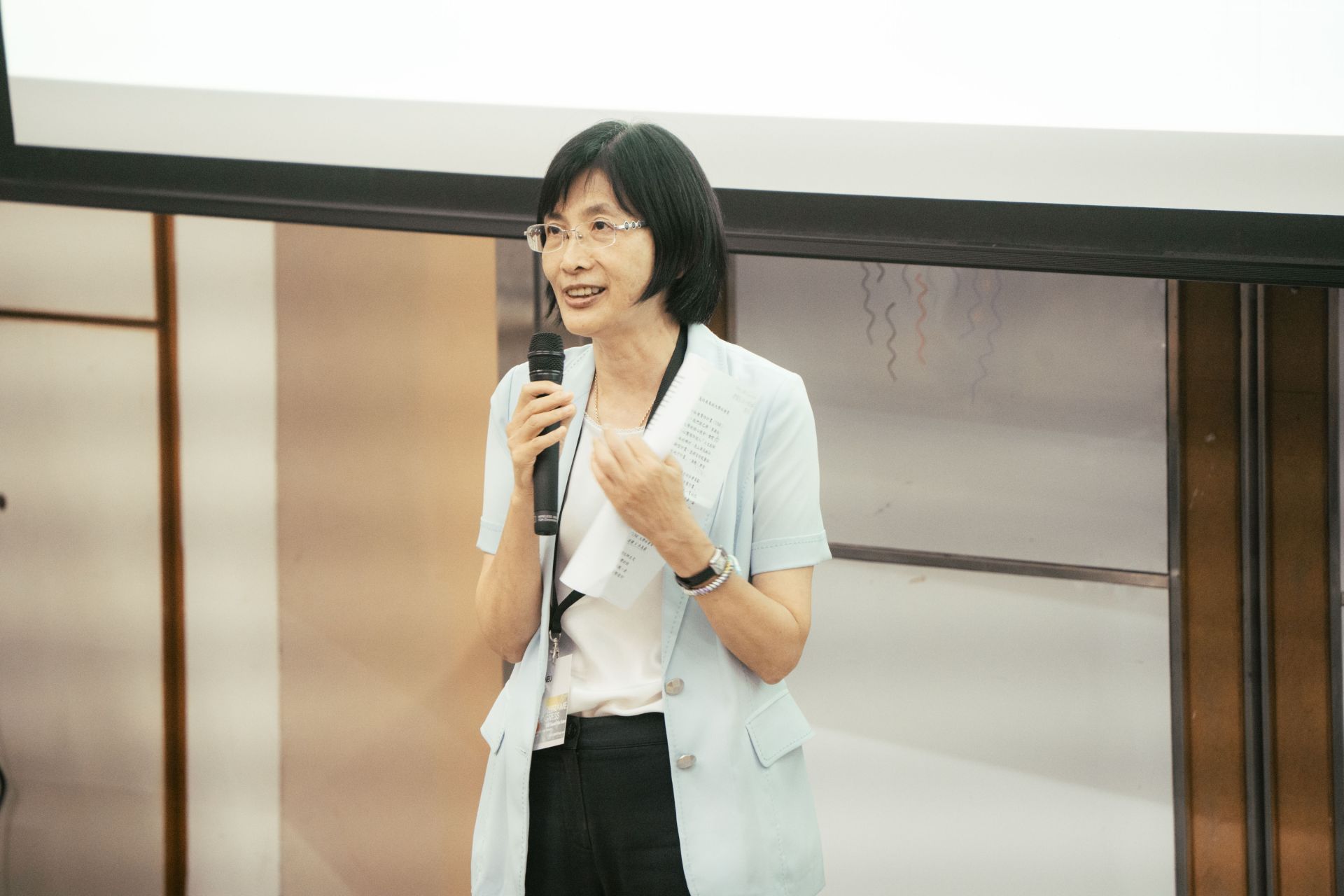
Vice President Yuh-Neu Chen stated that NCKU has always responded to the era’s diverse challenges with knowledge and action, aiming to make academia a driving force for social change.
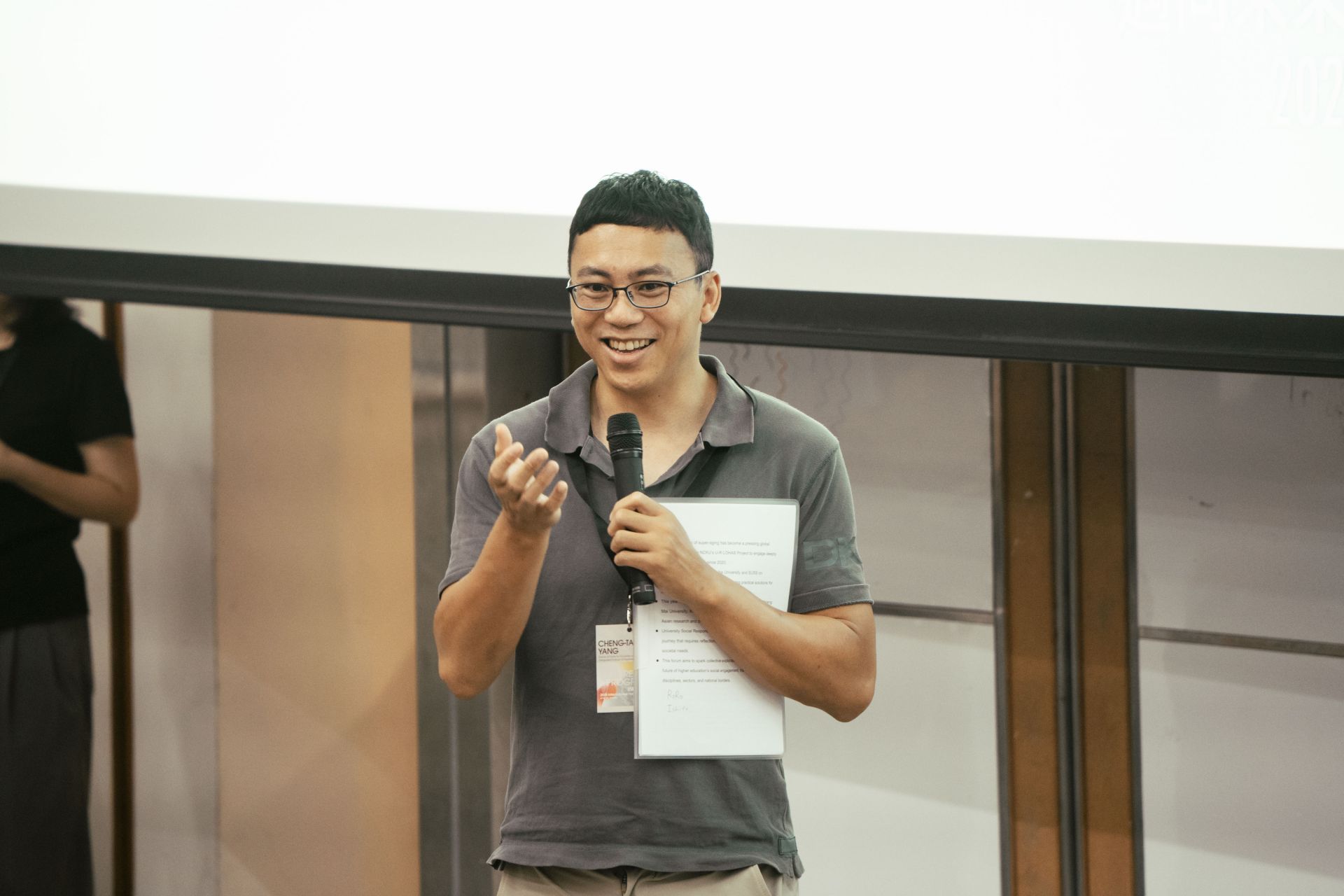
Director Cheng-Ta Yang expressed the hope that through this workshop and forum, a transnational consensus could be built to jointly foster an exchange community for East Asian research and practice.
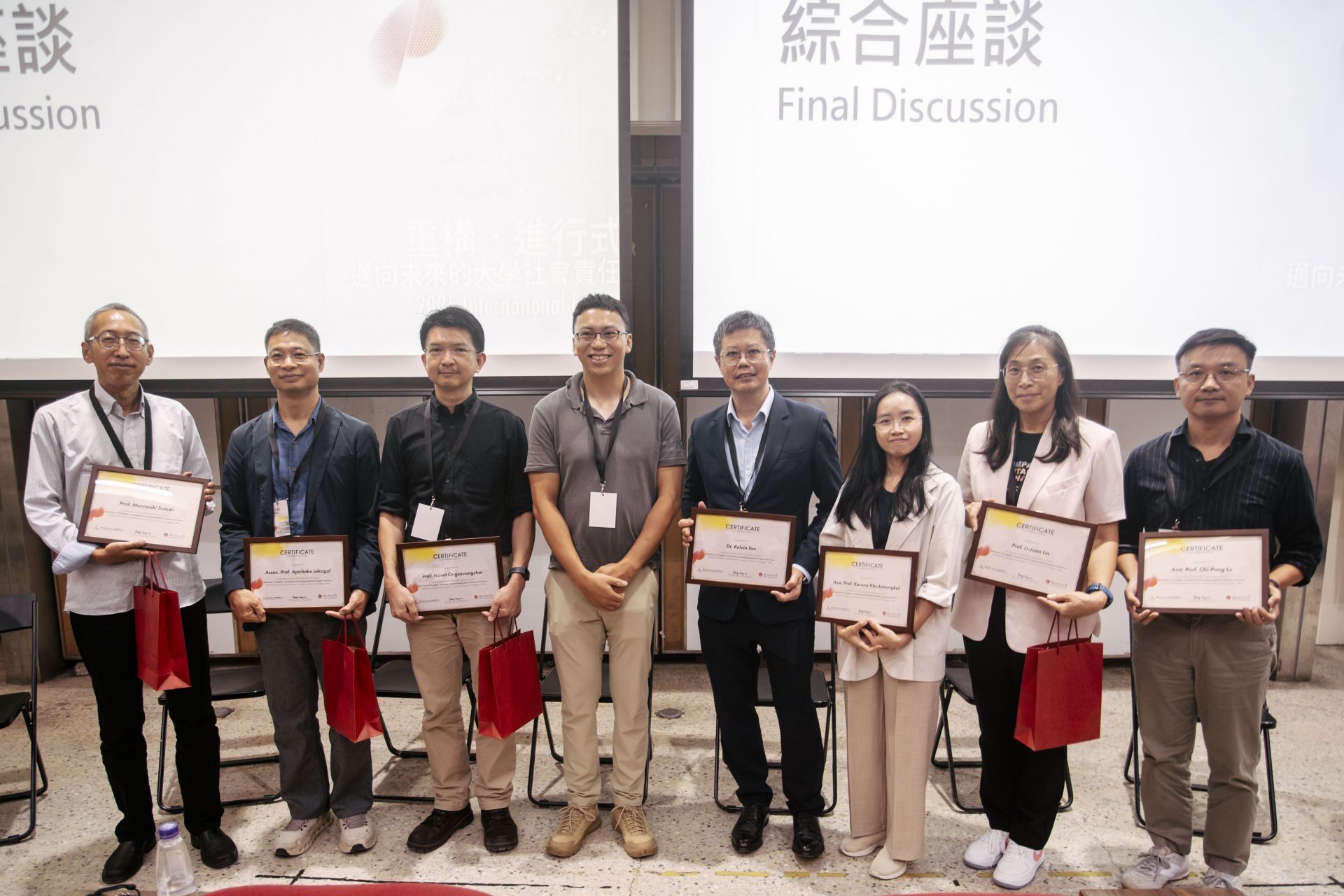
The forum invited scholars from Chiba University in Japan, Chiang Mai University and King Mongkut’s University of Technology in Thailand, Singapore University of Social Sciences, and Universitas Indonesia to share their insights.
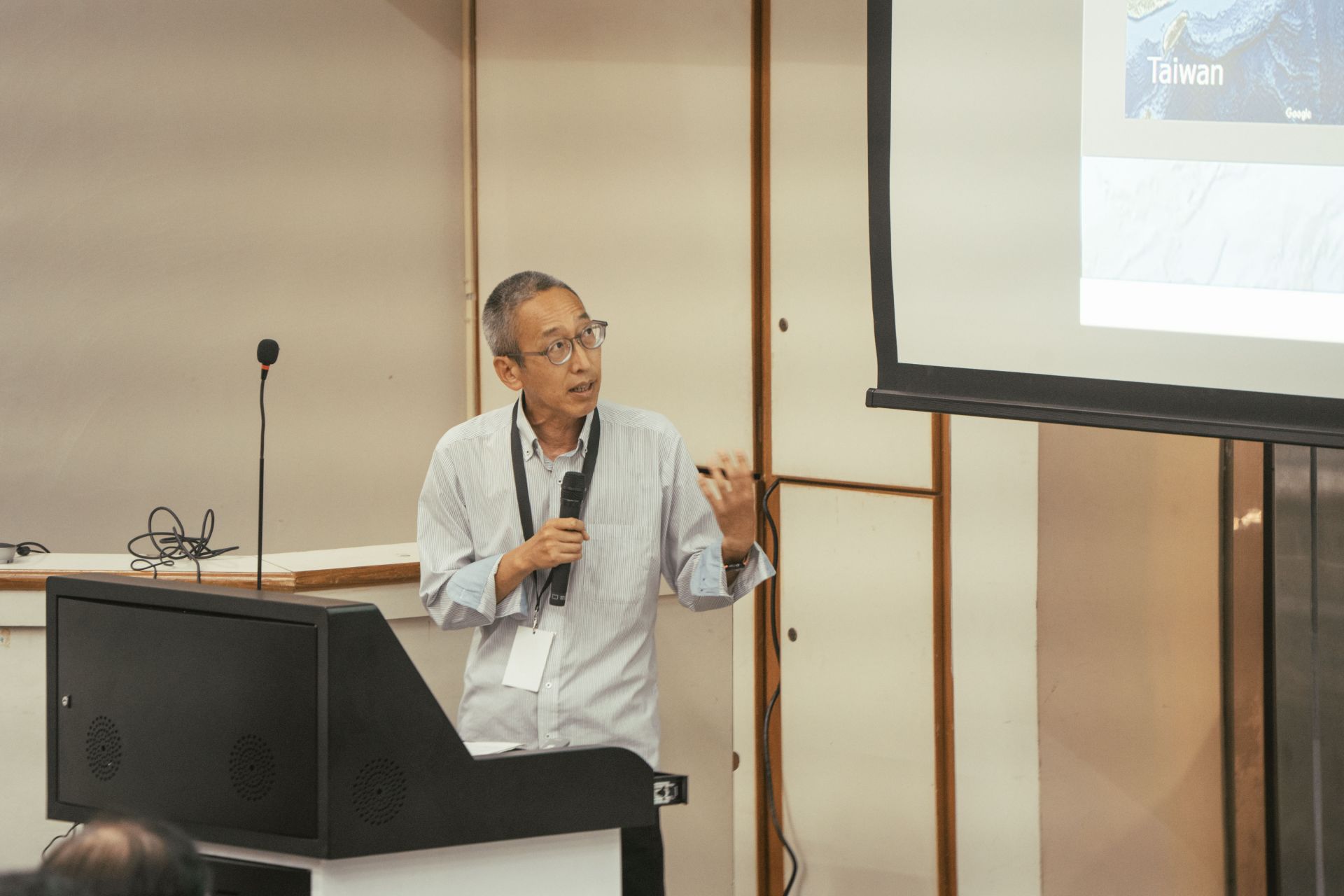
Professor Masayuki Suzuki of Chiba University shared how universities can play a role in integrating and connecting local governments, businesses, and residents.
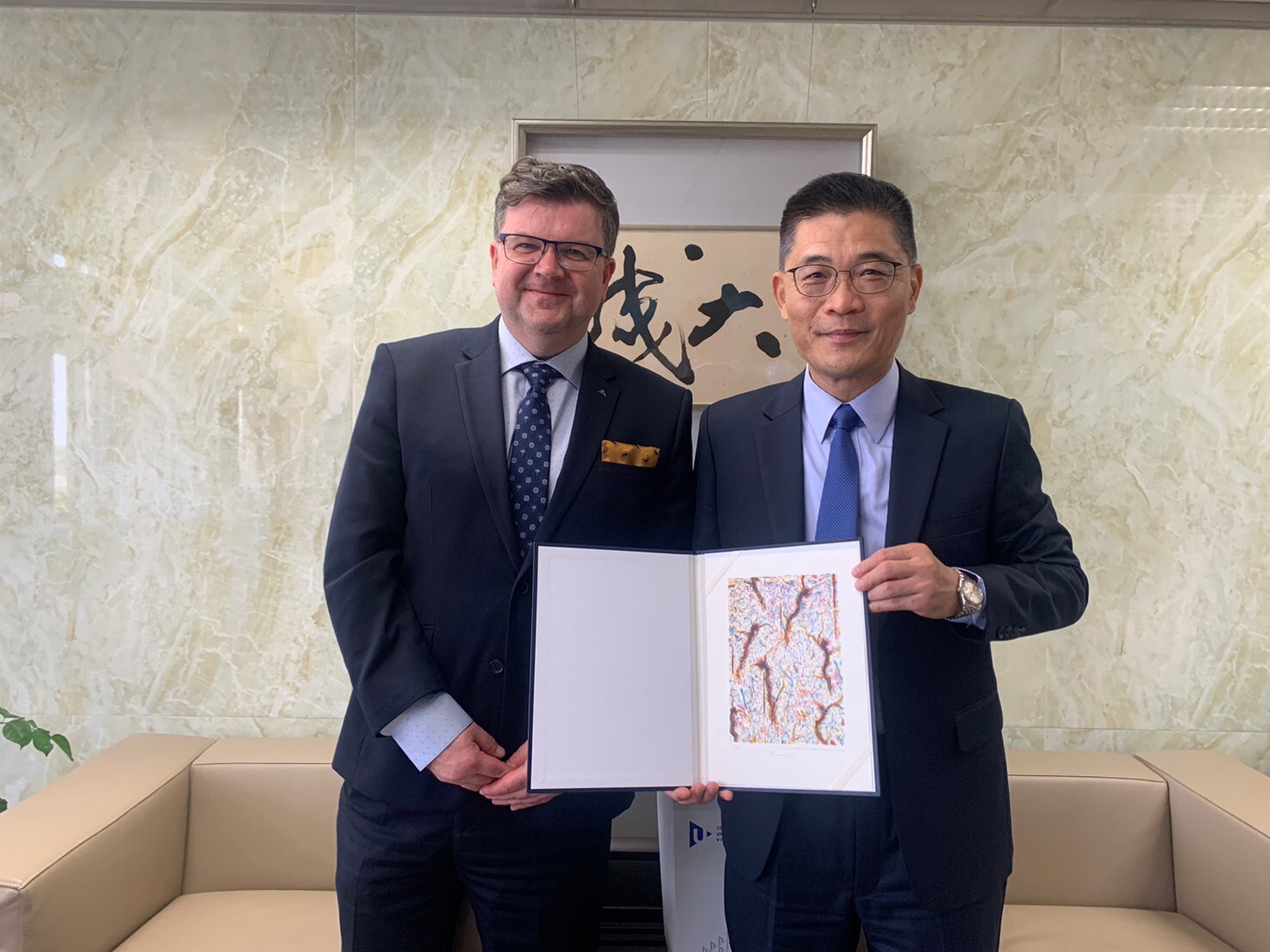
SDG17Czech-Taiwan academic collaboration for Semi-conductor : University of West Bohemia Delegation Visits NCKU
View more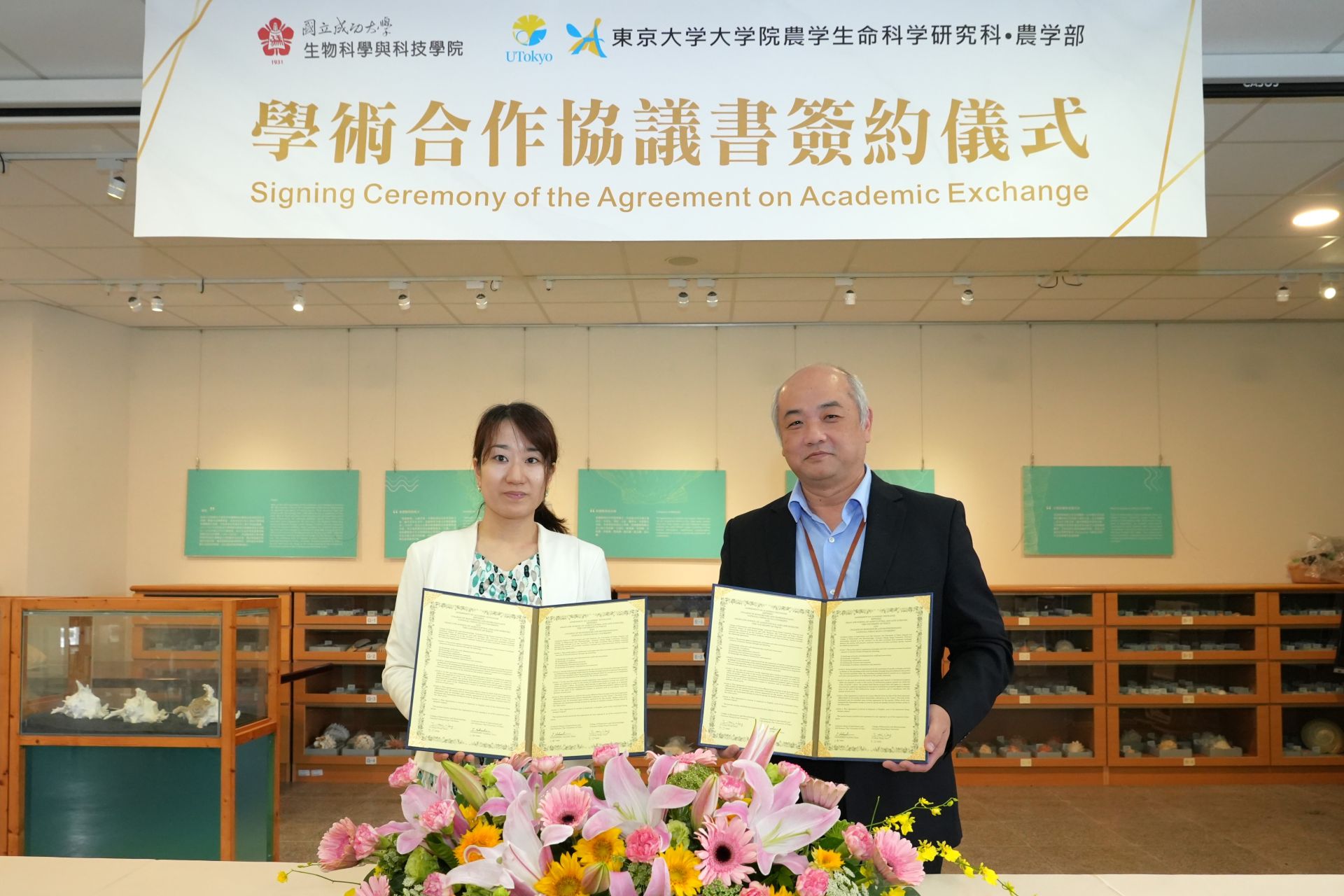
SDG17NCKU and the University of Tokyo Sign Academic Cooperation Agreement to Strengthen Research Collaboration
View more